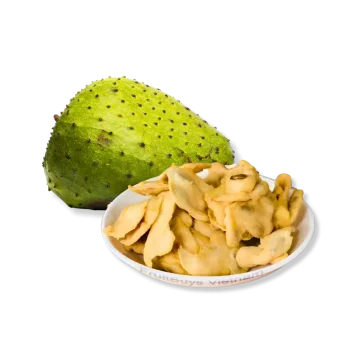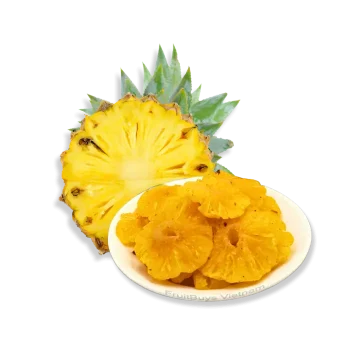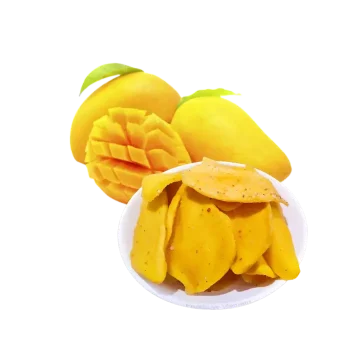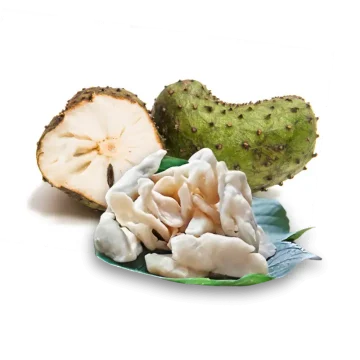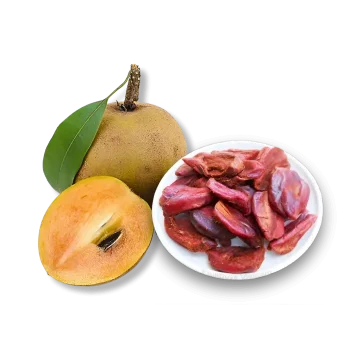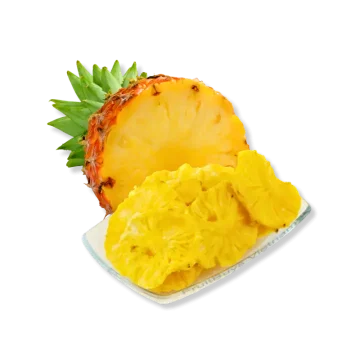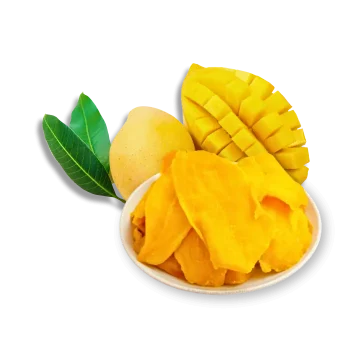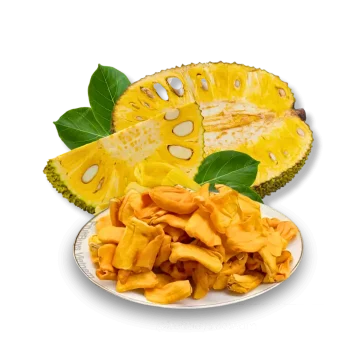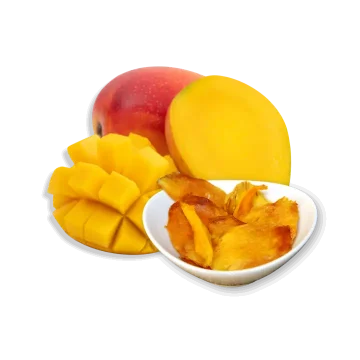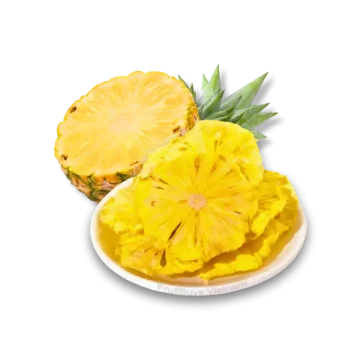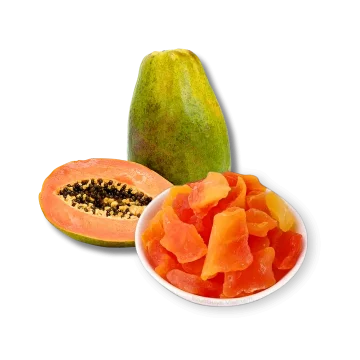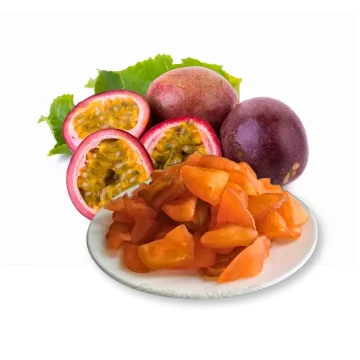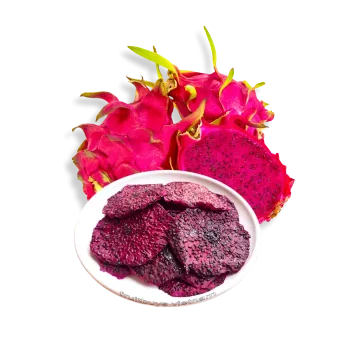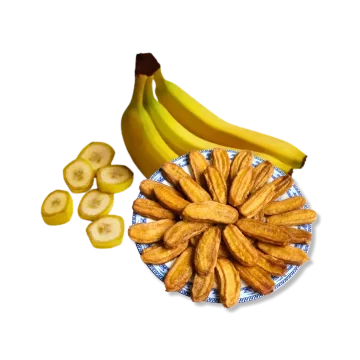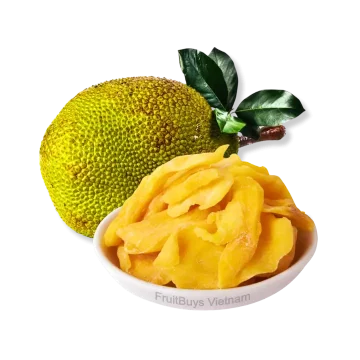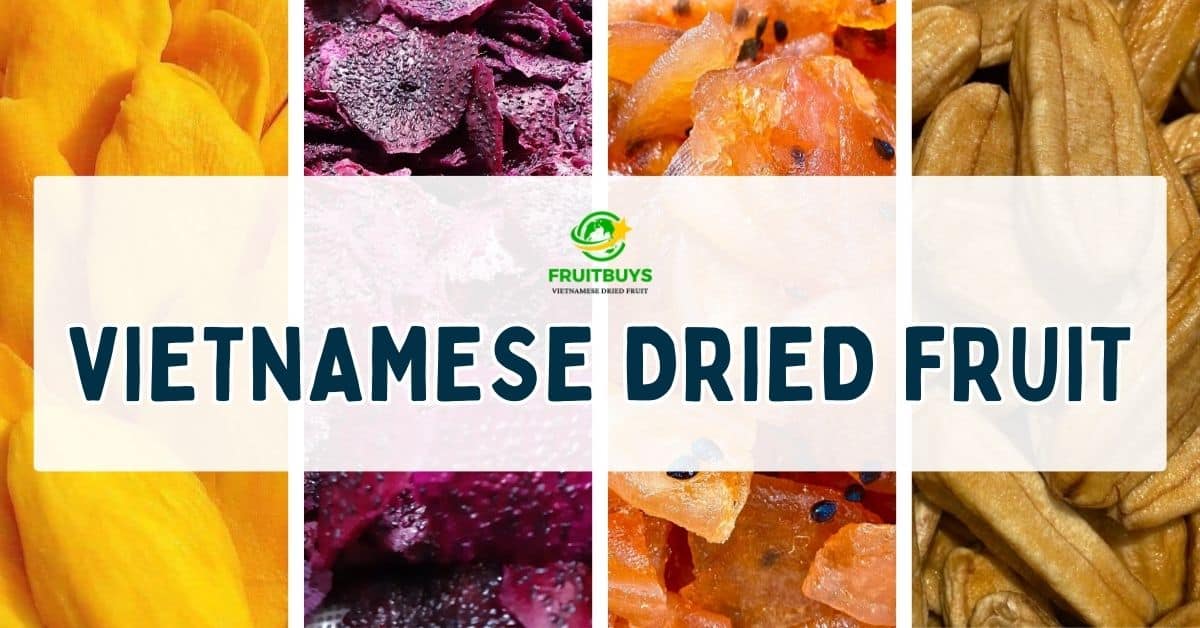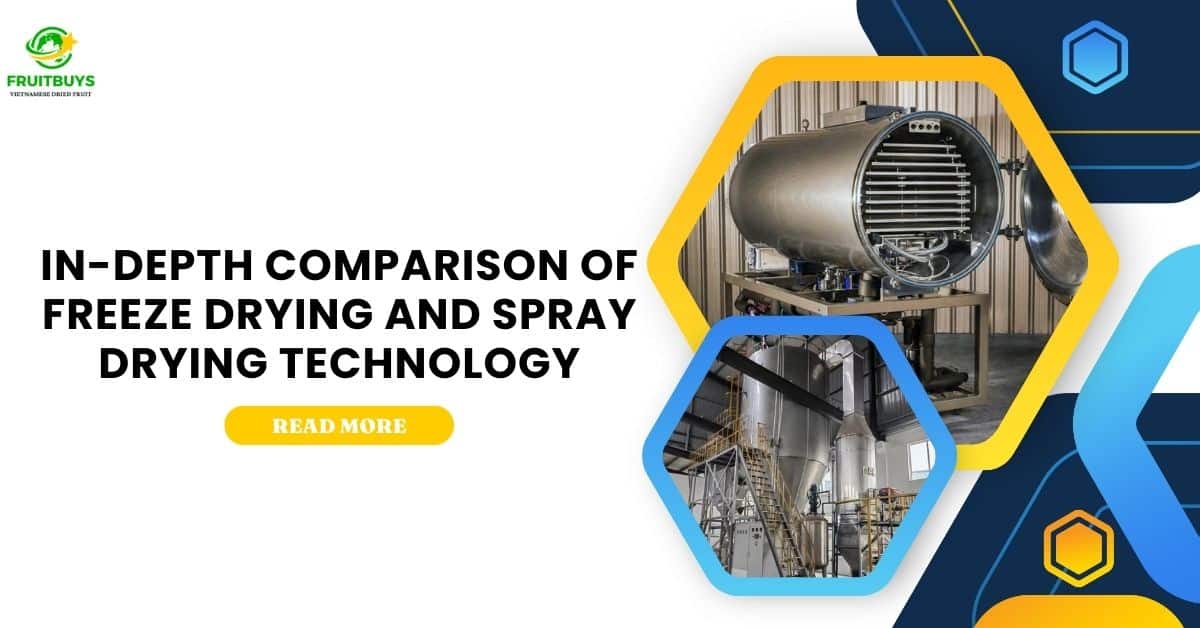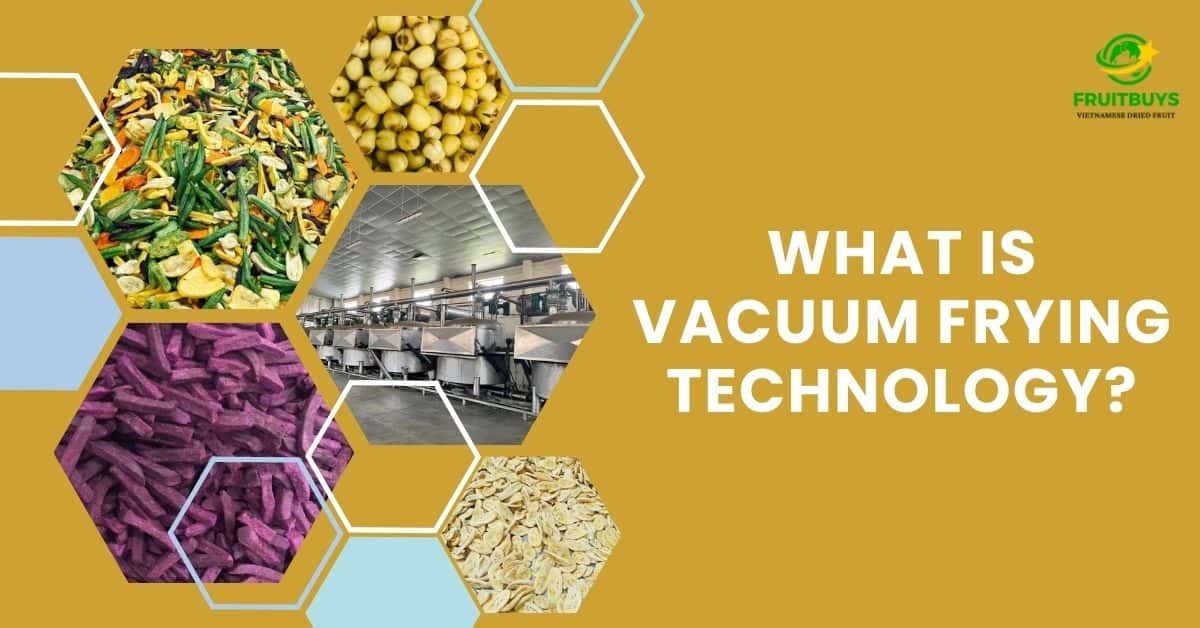Mangoes are one of the most popular fruits in the world, and for good reason. They are delicious, nutritious, and versatile. But not all mangoes are created equal. Some are too ripe, some are too sour, some are too hard, and some are too soft. How can you enjoy the perfect mango every time? At FruitBuys Vietnam, we have mastered the art of transforming fresh mangoes into air-dried mango slices that are bursting with flavor, texture, and nutrition. Our air-dried mangoes are unlike any other dried fruit you’ve ever tasted. They are vibrant, sweet, chewy, and satisfying. They are also healthy, eco-friendly, and convenient. They are the ultimate snack for any occasion. But how do we make our air-dried mangoes so amazing? What is the secret behind our production process? And why should you choose FruitBuys Vietnam as your trusted mango partner? In this article, I’ll answer all these questions and more. I’ll take you on a journey from the orchard to the oven, and show you how we turn fresh mangoes into air-dried mangoes that shine brighter than the sun. I’ll also explain how our air-dried mangoes can benefit your health, your business, and your customers. And I’ll tell you how we can work together to create tailored solutions for your specific needs.
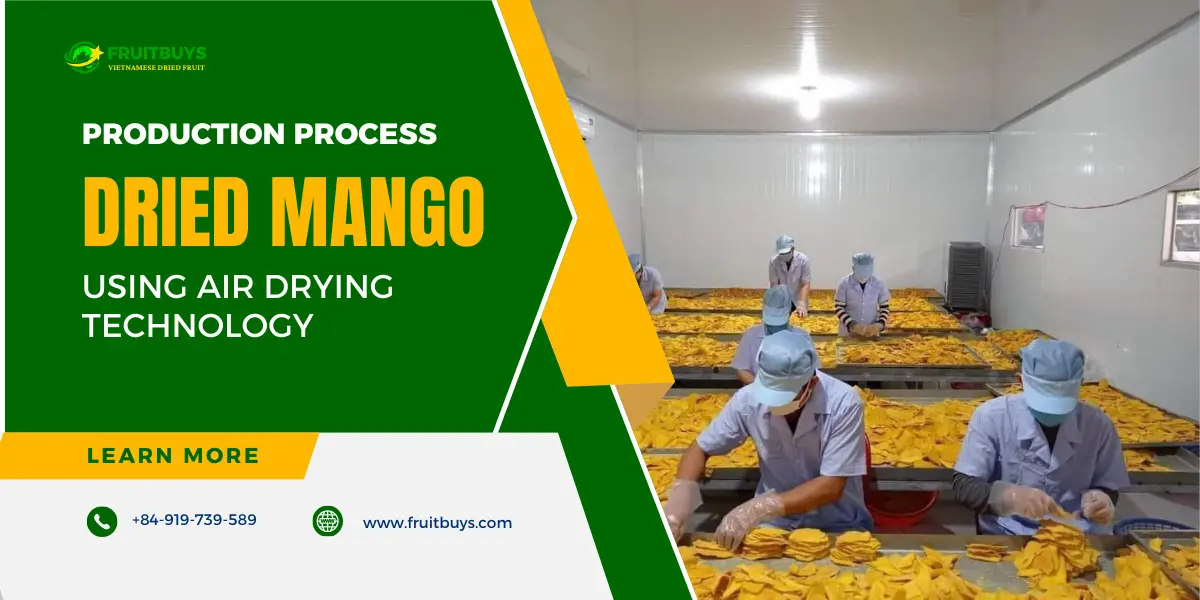
I. Unveiling the Secrets of FruitBuys Vietnam’s Air-Dried Mangoes
FruitBuys Vietnam is more than just a supplier of dried fruit snacks. We are a team of passionate fruit lovers who are dedicated to bringing you the best of nature’s bounty in every bite. Our mission is to create healthy and delicious snacks that you can enjoy anytime, anywhere. But what makes our air-dried mangoes so special? How do we transform fresh and juicy mangoes into crispy and chewy slices that burst with flavor and nutrition? The answer lies in our unique production process that uses air drying technology. Air drying is a method of food preservation that involves exposing food to hot air in a controlled environment. Unlike sun drying, which exposes food to direct sunlight and environmental contaminants, air drying ensures a consistent and hygienic drying process that preserves the natural qualities of the food. By using air drying technology, we are able to create air-dried mangoes that have the following advantages:
- No added sugar, preservatives, or artificial flavors: Our air-dried mangoes are made from 100% natural ingredients, with nothing added or taken away. You can enjoy the pure and authentic taste of mangoes, without any additives or chemicals.
- High nutrient retention: Air drying gently removes the moisture from the mangoes, while retaining most of their vitamins, minerals, antioxidants, and phytochemicals. Air-dried mangoes are rich in dietary fiber, vitamin A, vitamin C, potassium, and other beneficial nutrients that support your health and wellness.
- Long shelf life and easy storage: Air drying reduces the water activity of the mangoes, making them less prone to spoilage and microbial growth. Air-dried mangoes can last for up to 12 months when stored in a cool and dry place, and do not require refrigeration or freezing. You can easily store them in your pantry, backpack, or office drawer, and enjoy them whenever you crave a fruity snack.
- Versatile and convenient: Air-dried mangoes are not only delicious on their own, but also great for adding to your favorite recipes. You can use them as a topping for your yogurt, cereal, or salad, or as an ingredient for your smoothies, cakes, or cookies. You can also rehydrate them by soaking them in water or juice, and enjoy them as a soft and juicy treat.
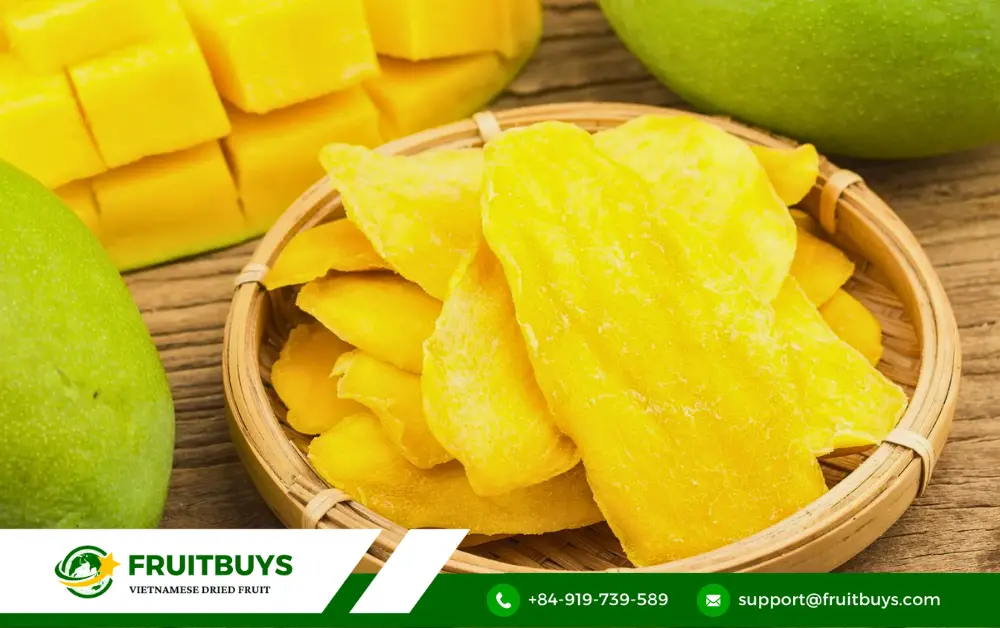 Learn more >>> Top 5 Best Dried Mangoes from Vietnam You Need to Try: Healthy, Vegan, No Sugar, and Low Sugar Snacks
Learn more >>> Top 5 Best Dried Mangoes from Vietnam You Need to Try: Healthy, Vegan, No Sugar, and Low Sugar Snacks
II. From Orchard to Oven: The Journey of a Perfect Mango Slice
At FruitBuys Vietnam, we take pride in every step of our production process, from sourcing the freshest and finest mangoes, to slicing and drying them with care and precision, to packaging and delivering them to your doorstep. Here is how we make our perfect mango slices:
*Selecting the Mango Stars
The quality of our air-dried mangoes depends largely on the quality of our fresh mangoes. That is why we only source our mangoes from trusted and certified farmers who grow them organically and sustainably. We carefully select the mangoes that are ripe, sweet, and juicy, and transport them to our processing facility as soon as possible.
*A Gentle Transformation: Washing and Slicing
Once the mangoes arrive at our facility, we wash them thoroughly with clean water and sanitize them with ozone to remove any dirt, bacteria, or pesticides. Then, we peel and slice them into uniform pieces, ensuring that they have the same thickness and size for even drying. We also remove any seeds, stems, or bruises that may affect the quality of the final product.
*Preserving Nature’s Bounty: The Magic of Air Drying
The next step is to place the mango slices into our state-of-the-art air dryers, which are equipped with temperature and humidity sensors, fans, and heaters. The air dryers circulate hot air around the mango slices, gradually removing the moisture from them, while maintaining their natural color, flavor, and texture. The drying process takes about 8 to 12 hours, depending on the type and size of the mango slices.
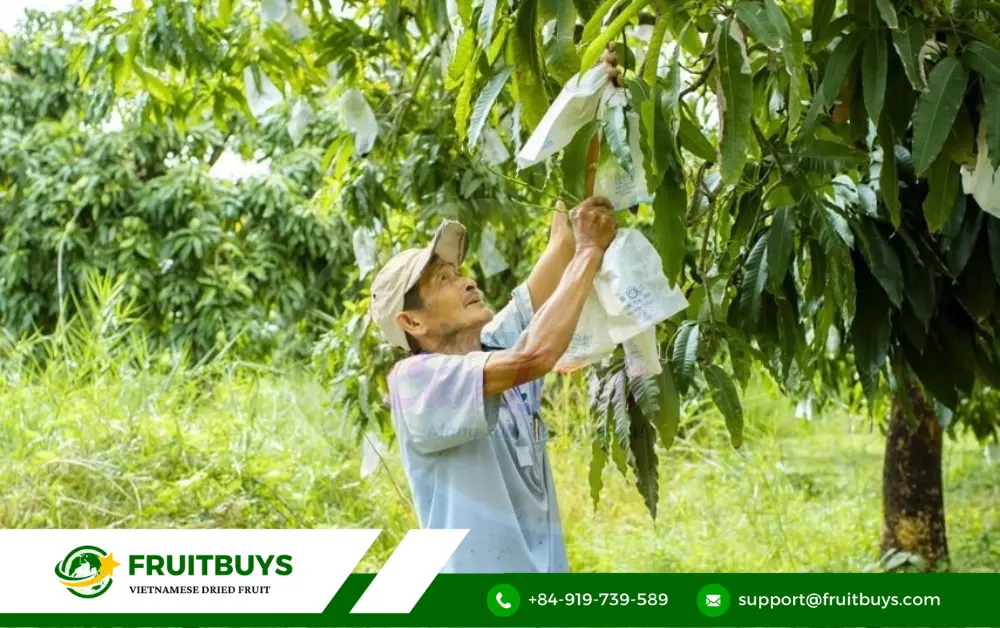 Learn more >>> Sourcing Vietnamese Mangoes and A Global Perspective
Learn more >>> Sourcing Vietnamese Mangoes and A Global Perspective
III. Beyond Sun-Kissed: Why Air-Dried Mangoes Shine Brighter
If you have ever tried sun-dried mangoes, you may have noticed that they are often dark, hard, and bland. This is because sun drying exposes the mangoes to harsh sunlight, which degrades their quality and nutritional value. Sun drying also exposes the mangoes to dust, insects, birds, and other contaminants, which may compromise their safety and hygiene. On the other hand, air-dried mangoes are a whole different story. They are bright, soft, and flavorful, with a crispy and chewy texture that makes them irresistible. Here are some of the reasons why air-dried mangoes shine brighter than sun-dried ones:
*A Symphony of Flavor and Texture
Air drying preserves the natural sugars and acids of the mangoes, enhancing their sweetness and tanginess. Air-dried mangoes have a vibrant yellow-orange color that reflects their freshness and ripeness. They also have a crispy and chewy texture that satisfies your crunch and chew cravings. Air-dried mangoes are a symphony of flavor and texture that will delight your taste buds.
*A Toast to Health: The Nutritional Powerhouse
Air drying does not only preserve the flavor and texture of the mangoes, but also their nutritional value. Air-dried mangoes are a powerhouse of nutrients that can boost your health and wellness. Here are some of the benefits of air-dried mangoes:
- Fiber: Air-dried mangoes are rich in dietary fiber, which can help you feel full longer, regulate your digestion, lower your cholesterol, and prevent constipation. Fiber can also help you control your blood sugar levels, and reduce your risk of diabetes and heart disease.
- Vitamin A: Air-dried mangoes are an excellent source of vitamin A, which can support your vision, skin, and immune system. Vitamin A can also help you fight infections, inflammation, and oxidative stress.
- Vitamin C: Air-dried mangoes are a good source of vitamin C, which can help you produce collagen, heal wounds, and absorb iron. Vitamin C can also help you protect your cells from free radical damage, and enhance your immunity and resistance to infections.
- Potassium: Air-dried mangoes are a good source of potassium, which can help you maintain your fluid and electrolyte balance, regulate your blood pressure, and support your nerve and muscle function. Potassium can also help you prevent muscle cramps, fatigue, and dehydration.
- Other nutrients: Air-dried mangoes also contain other beneficial nutrients, such as vitamin B6, folate, magnesium, copper, and antioxidants. These nutrients can help you support your metabolism, energy production, red blood cell formation, bone health, and overall well-being.
Air-dried mangoes are suitable for various dietary needs, such as vegan, gluten-free, dairy-free, and nut-free. They are also low in calories, fat, and sodium, making them ideal for weight management and healthy snacking.
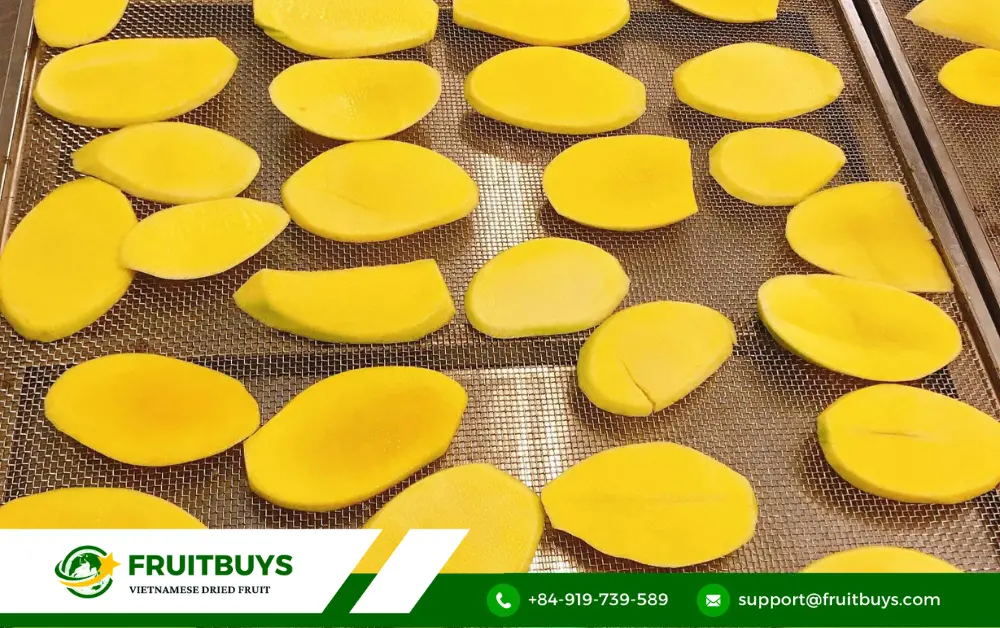
*Sustainability in Every Bite: Eco-Friendly Air Drying
At FruitBuys Vietnam, we care not only about your health, but also about the health of the planet. That is why we use air drying technology, which is more eco-friendly than sun drying or other drying methods. Here are some of the ways that air drying contributes to sustainability:
- Energy efficiency: Air drying uses less energy than other drying methods, such as oven drying, microwave drying, or freeze drying. Air drying also uses renewable energy sources, such as solar power, to reduce the carbon footprint and greenhouse gas emissions of the production process.
- Waste reduction: Air drying reduces the amount of waste generated by the production process, as it does not require any additives, preservatives, or artificial flavors. Air drying also reduces the amount of water used and wasted by the production process, as it does not require any washing or rinsing of the dried products.
- Food security: Air drying increases the food security of the local communities, as it extends the shelf life and availability of the fresh fruits, especially during the off-season or in times of scarcity. Air drying also creates more income and employment opportunities for the local farmers and workers, as it adds value to their products and increases their market access.
IV. From Farm to Fork: FruitBuys Vietnam, Your Trusted Mango Partner
FruitBuys Vietnam is more than just a supplier of air-dried mangoes. We are also your trusted partner in delivering mango magic to your customers. Whether you are a retailer, wholesaler, distributor, or manufacturer, we have the solutions and services that can meet your needs and expectations. Here is what we can offer you:
*Quality Guaranteed: Unwavering Commitment to Standards
At FruitBuys Vietnam, we never compromise on quality. We adhere to the highest standards of food safety and hygiene throughout our production process, from farm to fork. We have the following certifications and accreditations that attest to our quality and credibility:
- HACCP: Hazard Analysis and Critical Control Points, a system that identifies and controls the potential hazards in food production, such as biological, chemical, and physical hazards.
- ISO 22000: International Organization for Standardization, a standard that specifies the requirements for a food safety management system, covering all aspects of food production, from raw materials to finished products.
- BRC: British Retail Consortium, a standard that ensures the quality, safety, and legality of food products, as well as the compliance with customer requirements and best practices.
- HALAL: A certification that ensures that the food products are prepared according to the Islamic dietary laws and regulations, which prohibit the consumption of pork, alcohol, blood, and other forbidden substances.
We also conduct regular inspections and tests on our products, using advanced equipment and methods, to ensure that they meet our quality specifications and customer expectations. We check for the moisture content, water activity, color, flavor, texture, and microbiological parameters of our air-dried mangoes, and reject any batches that do not pass our standards. We also use tamper-proof and moisture-proof packaging materials, such as vacuum-sealed bags and plastic containers, to protect our products from damage and contamination during storage and transportation. You can rest assured that our air-dried mangoes are safe, fresh, and delicious when they reach your hands.
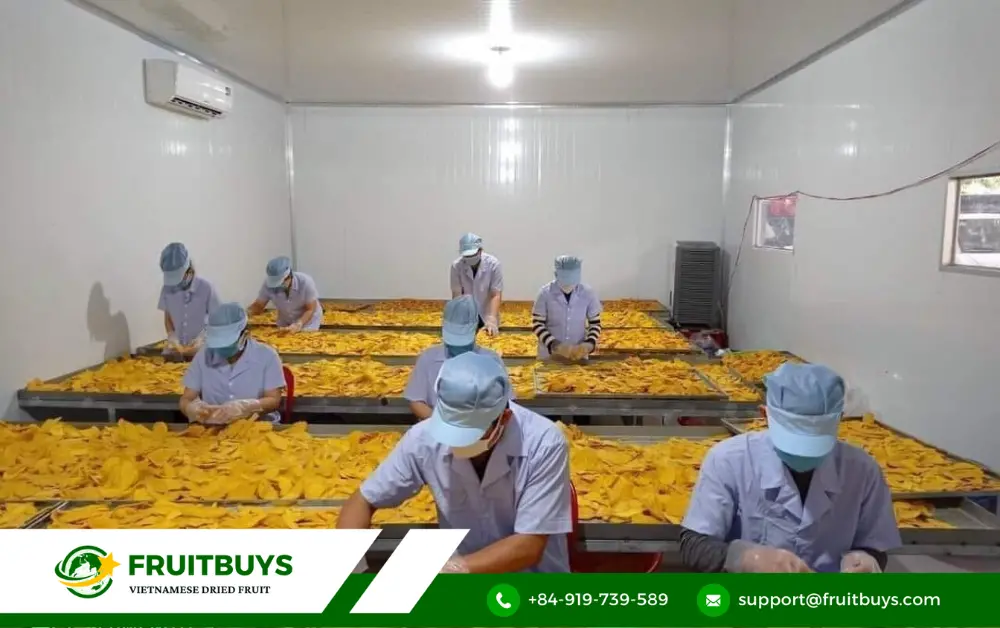
*Global Reach, Local Touch: Delivering Mango Magic Worldwide
FruitBuys Vietnam is not only a local leader, but also a global player in the dried fruit industry. We have a wide network of distribution channels and logistics partners that enable us to deliver our air-dried mangoes to over 220 countries and territories worldwide. Whether you need your products delivered by air, sea, or land, we have the solutions and expertise to make it happen. We offer two types of delivery services for your convenience and preference:
- International express delivery: This is the fastest and most reliable way to get your products delivered to your destination. We use reputable and trusted courier companies, such as DHL, FedEx, UPS, and TNT, to ensure that your products arrive safely and on time. You can track your shipment’s status online 24/7 through the tracking system provided by FruitBuys. The delivery time ranges from 5 to 9 working days, depending on the destination and customs clearance.
- Cargo shipping: This is the most economical and eco-friendly way to get your products delivered to your destination. We use cargo ships that connect you with over 500 seaports in 200+ countries and territories globally. You can also track your shipment’s status online 24/7 through the tracking system provided by FruitBuys. The delivery time ranges from 2 to 6 weeks, depending on the destination and customs clearance.
You can choose between cargo shipping or time-customized express delivery services based on your needs, budget, and urgency. We will provide you with the best rates and options for your shipment, and handle all the necessary paperwork and procedures for you. We will also keep you updated on the progress and status of your shipment, and assist you with any issues or inquiries that may arise along the way.
*Partnering for Success: Tailored Solutions for Your Business
FruitBuys Vietnam is more than just a supplier of air-dried mangoes. We are also a partner for your success. We understand that every business has different needs and goals, and we are here to help you achieve them. That is why we offer tailored solutions and services that can suit your specific requirements and preferences. One of our most popular and sought-after services is our OEM service, which stands for Original Equipment Manufacturer. This means that we can produce and package our air-dried mangoes under your own brand name and logo, according to your specifications and standards. You can choose from our existing products, or request for custom-made products that match your desired flavor, size, shape, and ingredients. You can also choose from our various packaging options, such as bags, boxes, jars, or cans, or request for your own design and material. We can also print and label your products with your own information and barcode, or provide you with blank labels that you can fill in yourself. Our OEM service is ideal for businesses that want to create their own brand identity and reputation, and have more control and flexibility over their products. By using our OEM service, you can benefit from the following advantages:
- Save time and money: You don’t have to invest in your own production facility, equipment, or staff, or deal with the hassle and cost of sourcing, processing, and packaging your own products. You can simply outsource the production and packaging to us, and focus on your core business activities, such as marketing, sales, and customer service.
- Leverage our expertise and experience: You can rely on our expertise and experience in the dried fruit industry, and benefit from our quality control, food safety standards, and certifications. You can also tap into our market knowledge and insights, and get advice and support from our professional and friendly staff.
- Increase your customer loyalty and satisfaction: You can offer your customers high-quality and unique products that reflect your brand values and vision. You can also customize your products to meet your customers’ needs and preferences, and create a lasting impression and relationship with them.
If you are interested in our OEM service, please contact us today for a consultation and quotation. We will be happy to discuss your needs and expectations, and provide you with the best solutions and options for your business. Contact us via WhatsApp +84-919 739 589 or email us at support@fruitbuys.com.

Learn more >>> An Ultimate Guide To Logistics Management And Customs Services
V. Conclusion
Thank you for reading this article. I hope you have enjoyed learning more about our air-dried mangoes and how they can help your business grow. FruitBuys Vietnam is your trusted partner in delivering mango magic to your customers. We offer high-quality and delicious air-dried mangoes, made with the best ingredients and technology, and delivered with the best services and solutions. Whether you need air-dried mangoes for your own consumption, or for your retail, wholesale, distribution, or manufacturing business, we have the products and services that can meet your needs and expectations. If you want to order our air-dried mangoes, or learn more about our products and services, please visit our website at www.fruitbuys.com, or contact us via WhatsApp +84-919 739 589 or email us at support@fruitbuys.com. We will be happy to assist you and answer any questions you may have. Don’t miss this opportunity to experience the magic of FruitBuys Vietnam air-dried mangoes. Order now and get a special discount and free shipping for your first order. Hurry, this offer is valid only for a limited time. Don’t let this chance slip away. Order now and enjoy the taste of nature in every bite!
VI. FAQs-People also ask
What is air drying technology for mangoes?
- Air drying technology is a method of removing moisture from mango slices by using hot air that circulates around them. This process preserves the flavor, color, and nutrients of the mangoes, while reducing the risk of microbial spoilage and enzymatic browning.
What are the benefits of air drying vs sun drying for mangoes?
- Air drying has several advantages over sun drying, such as faster drying time, better quality control, lower energy consumption, and less environmental impact. Air drying also avoids the problems of sun drying, such as dust, insects, birds, and weather variations.
How to make air-dried mango at home?
- To make air-dried mango at home, you need fresh and ripe mangoes, a sharp knife, a baking sheet, and an oven. First, wash and peel the mangoes, then slice them into thin and uniform pieces. Next, arrange the mango slices on a baking sheet, leaving some space between them. Then, preheat the oven to 70°C and place the baking sheet inside. Bake the mango slices for about 6 to 8 hours, flipping them halfway through, until they are dry and leathery. Finally, let the mango slices cool completely and store them in an airtight container.
What are the factors affecting shelf life of air-dried mangoes?
- The shelf life of air-dried mangoes depends on several factors, such as the moisture content, water activity, packaging material, storage temperature, and relative humidity. Generally, air-dried mangoes with lower moisture content and water activity have longer shelf life, as they are less prone to microbial growth and chemical reactions. Packaging material also plays a role in preventing moisture loss and oxygen exposure, which can affect the quality and safety of the product. Storage temperature and relative humidity should be kept low to avoid moisture absorption and mold formation.
Where can I buy air-dried mangoes from FruitBuys Vietnam?
- You can buy air-dried mangoes from FruitBuys Vietnam online or offline. Online, you can visit their website here and place your order. You can also contact them via email, phone, or social media. Offline, you can find their products in various supermarkets, convenience stores, and specialty shops in Vietnam and abroad.
#airdriedmango, #fruitbuysvietnam, #mangoprocessing, #healthyanddelicious, #driedfruitsnacks, #mangolovers, #airdryingtechnology, #sustainablefoodproduction, #exportquality, #privatelabelservices.
FruitBuys Vietnam is a leading supplier of freeze dried fruit and dried fruit snacks in Vietnam. We dry fruit without added sugar to create healthy and delicious snacks for both individuals and businesses. We offer a wide variety of fruits, great wholesale prices, and fast shipping. We also provide packaging and printing services, no minimum quantity order policy, free samples, and support for customs clearance. Contact us today to order our high profit margin products and taste our dried fruits.
